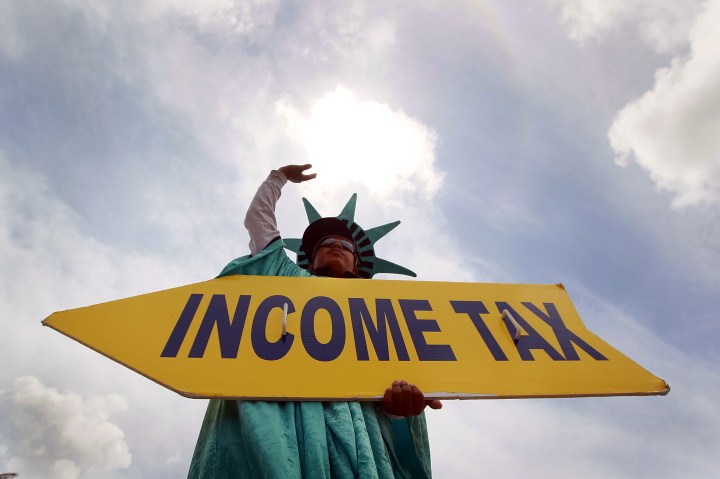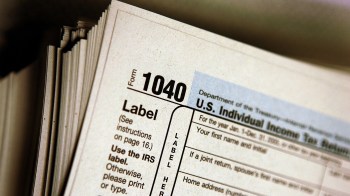
Could return-free tax filing actually be on the horizon?

‘Tis the taxation season. With people gathering their paperwork to fill out their taxes or paying someone to do it for them, now is an opportune moment to look at an approach practiced in many other countries: return-free filing.
In essence, return-free filing cuts out a big part of the tax process by having the government send a taxpayer a bill or a refund directly. This method of taxation hasn’t taken off in the U.S. due in large part to lobbying by tax preparation companies like Turbotax that serve as middlemen between people and the IRS. But according to Marketplace senior economics contributor Chris Farrell, growing calls for return-free filing and new funding for the IRS could change that.
“In the U.S., the tax preparation industry really doesn’t like this idea,” Farrell said in an interview with Marketplace’s David Brancaccio. “And they have lobbied hard against it. And so far, they’ve been really successful. But here’s the thing: this is an idea that won’t go away, because it works.”
The following is an edited transcript of their conversation.
Chris Farrell: This basic idea called return-free filing, it’s been proposed for the U.S. And it would work like this: the Internal Revenue Service, it takes the tax-related information — it already gets the wage data from your employer. And I don’t know if you’ve made any interest income, but the interest income from your bank. And taxpayers, like you did in Britain, they just receive a pre-filled-out form from the IRS, and if it in turn looks good, you sign it, send the IRS the money you owe, or you’ll get your refund.
David Brancaccio: All right, so you’d save a ton of time and all this wading through arcane tax rules. And maybe it would help our blood pressure, I suppose.
Farrell: I think it would, I mean, there was a study by economist Austin Goldsby. He’s now head of the Federal Reserve Bank of Chicago. He says, look, you know, a lot of the burden of this tax code, it comes from the time costs associated with complying. And if you pay a professional, there is a cost. So the insight that’s really driving this return-free filing proposal is, look, the U.S. tax code is really complicated and confusing. But the typical taxpayer has a pretty straightforward return.
Brancaccio: I remember this idea. It’s not the first time I’ve heard of it, it’s been lurking around.
Farrell: And you had experience in Britain. Remember, the Tax Reform Act of 1986 called on the IRS to study this. [In] 1998, Congress called on the IRS to come up with a plan. Here’s the thing: in the U.S., the tax preparation industry really doesn’t like this idea. And they have lobbied hard against it. And so far, they’ve been really successful. But here’s the thing. This is an idea that won’t go away, because it works.
Brancaccio: But I got to ask about our friends at the Internal Revenue Service. They came out of pandemic with enormous backlogs and constantly talked about chronic underfunding. They got a raise, but apparently still backlogs. Would they be up to the task?
Farrell: So this has been a really serious objection to the return-free filing, but the Inflation Reduction Act has $80 billion that’s going to the IRS, and what that legislation says is they can spend it in four areas. And one of those four areas is to modernize their systems. So the IRS should be able to meet the challenge as it upgrades the systems and, you know, tax simplification which is, by the way, as you know, another windmill I’ve tilted against. If we got some tax simplification, that would also increase the number of taxpayers who might benefit from return-free filing. And David, we can always hope.
There’s a lot happening in the world. Through it all, Marketplace is here for you.
You rely on Marketplace to break down the world’s events and tell you how it affects you in a fact-based, approachable way. We rely on your financial support to keep making that possible.
Your donation today powers the independent journalism that you rely on. For just $5/month, you can help sustain Marketplace so we can keep reporting on the things that matter to you.

















